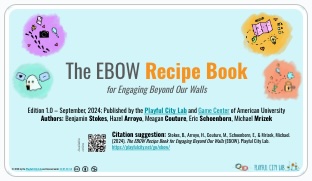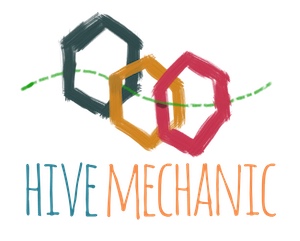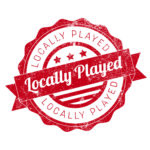We are scaffolding the field with strategy, technologies and case study models. In part, our goal is to translate our conceptual models and findings into broader use. Along the way, we learn how to democratize the design process — especially so that small institutions like libraries and community museums can participate.

In 2024, we published a recipe book with more than 15 models for Engaging Beyond Our Walls (EBOW) with neighborhood games and interactive stories. The publication is based on our work with 50+ libraries in the EBOW project, funded by IMLS. The project also features curricula and workshops for DIY projects, civic institutions and even university courses. See also our tools and design tactics overview.

Featured tool: Hive Mechanic – an authoring system for neighborhood games and interactive stories through accessible play. So far we have trained more than 50 cities and towns. The tool offers a new way to create your own city game, smart city activity, or participatory neighborhood story. Tap into city data, send text messages, use generative AI, or RFID to bring physical objects to life. No programming skills are required — we are scaffolding design thinking with our card system. Our goal is to help democratize design, not just for individuals but with scaffolds for the neighborhood associations and civic institutions that make places strong. Supported with funding from the Institute for Museum and Library Services (IMLS) in partnership with the DC Public Library for engaging beyond our walls (EBOW). Our code is open-source and runs on web servers. Version 2.0 of the software launch in 2025. We continue to write about our conceptual model for the ecosystem to support neighborhood games and connected play.
Messaging for the movement: Locally Played Stickers offer a logo and open campaign for anyone to use, inspired by the success of locally made goods. By calling a game “locally played,” we recognize and elevate a particular spirit of play—including hopes of greater connection to place, our neighbors, and our local history.
More tools and tactics for the field
- Our tools and tactics overview page gives a detailed list
- Writings on Participatory design (PD) for neighborhood installations (via ResearchGate)
